Professor Dragoș Gheorghiu and Eng. Livia Ştefan, participated with a paper presentation at the 20th International Conference on Cultural Heritage and New Technologies CHNT 2015, 2-4 November, 2015, Vienna.
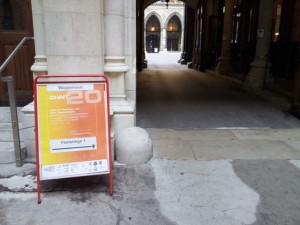
Professor Dragoș Gheorghiu and Eng. Livia Ştefan, participated with a paper presentation at the 20th International Conference on Cultural Heritage and New Technologies CHNT 2015, 2-4 November, 2015, Vienna.

Students from a secondary school visiting the Time Maps team in Mangalia, October 4th, 2015.
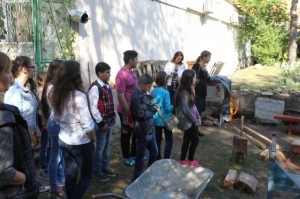
Professor Dragoș Gheorghiu participated at the EAA’s 21st Annual Meeting, 2-5 September, 2015, in Glasgow.
Ion Dimcea, Ovidiu Ionescu and Dragoş Gheorghiu built and fired a kiln with platform in the courtyard of Callatis Museum in Mangalia.
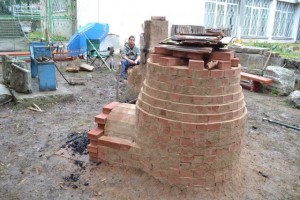
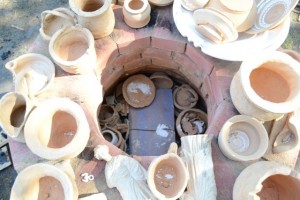
Dan Popovici coordinated the building and firing of a glass furnace, with the help of Pantelymon Arnaudov, Alexandru Drăgoi and Stefan Szabo.
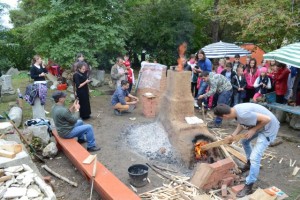
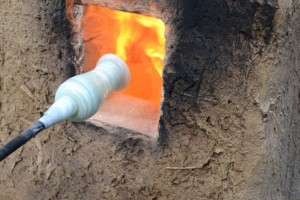
A series of re-enactments were prepared with the help of Paula Barbu and Alina Gurguţă, and carried with the help of Mihaela Beţiu and the students Lavinia Stan and Ioana-Maria Vişan. They were filmed by Sever Popescu Petrovici.
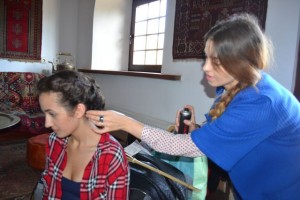
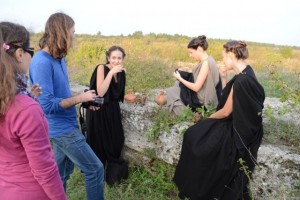
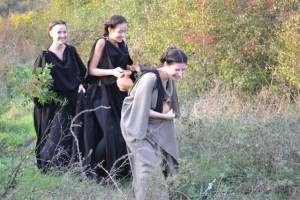
Between 19-28 July Time Maps team carried experiments in Belvi, Sardinia, in the Open Museum of Contemporary Art, during the ISSEP Summer School.
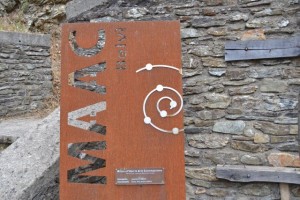
A kiln with platform was built by Ion Dimcea with the help of Dragoş Gheorghiu and Vlad Basarab.
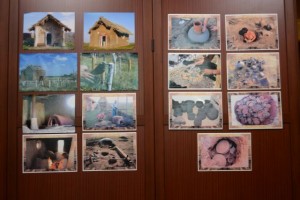
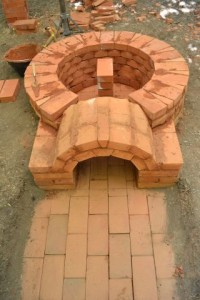
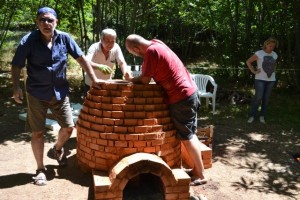
Experiments with cast metal were carried by Cătălin and Ileana Oancea.
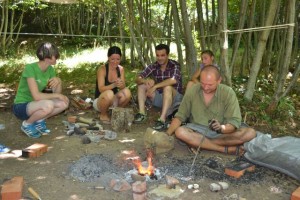
Eng. Livia Ştefan participated with a paper and a poster presentation at the Doctoral Consortium of the International Conference on Computer Supported Education CSEDU 2015 (DCCSEDU 2015), 23-25 May, 2015, Lisbon.
Eng. Livia Ştefan, participated with a paper presentation at the 11th International Scientific Conference eLearning and software for Education (eLSE), Bucharest, 25-26 April, 2015
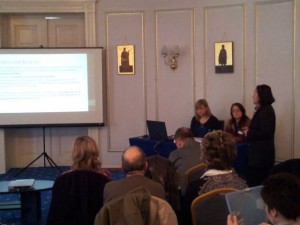
Davide Delfino and Dragos Georghiu presented the paper Fortificações, Paisagem, materiais antigos e contemporâneos para públicos de arqueologia: a página de Mação e Abrantes no projecto TimeMap at the XI Ibero-American Archaeology meeting in Mação, 17th March 2015, at Sala de Conferências do Museu de Arte Pré-Histórica de Mação.
Professor Dragoș Gheorghiu and Lecturer Adrian Șerbănescu presented the TimeMaps project at HEMUS International Conference, March 13th , 2015, in Skopje, Macedonia.
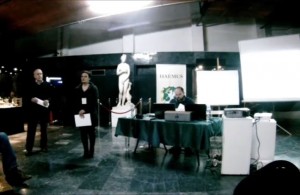
http://eaaglasgow2015.com/session/architectures-of-fire-processes-space-and-agency-in-pyrotechnology/
ARCHITECTURES OF FIRE: PROCESSES, SPACE AND AGENCY IN PYROTECHNOLOGY
Prof. Dragos Gheorghiu, National University of Arts – Bucharest and Mr. Derek Pitman, Bournemouth University
Session details
Session type
Oral presentation
Session ID
SA3
Session theme
Science and Archaeology
Abstract
Since their earliest use technologies that employ fire have been considered the some of the most complex endeavours of humankind. This is because they involve both the transformation of materials and require careful and precise control over furnace, kiln and hearth environments. The need to control the internal conditions of pyrotechnical features has resulted in an archaeological approach that, in many cases, has sought to establish and characterise these conditions primarily through scientific study. We are then familiar with studies that discuss reducing/oxidising conditions of kilns and furnaces or establish the operating temperatures of various processes. This focus on the internal conditions of such features has, arguably, been at the expense of a more holistic consideration of the features themselves. This session will discuss such features not in terms of their enclosed technical process, but as a form of specialised architecture: pyrotechnical architecture. This will allow a broader analysis which considers space, engagement and agency. Unlike most architecture, pyrotechnical architecture does not define an internal space to be occupied but instead defines a specific space that is inhabited in a manner that ensures a specific set of internal conditions. From this perspective new approaches to these types of features may be considered that can extend from excavation strategies to how we employ archaeological reconstructions. We welcome contributions that seek to address these matters in both theoretical and practical terms.